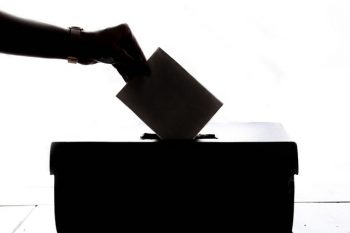French Politics – A voting debate Posted by Tim Hildreth on Feb 6, 2019 in Culture
In an earlier post on the protests in France by les Gilets Jaunes (the Yellow Vests), I talked about President Emmanuel Macron’s plans for a grand débat national (a great national debate) to uncover what is driving the ongoing unrest. One of the topics that has emerged from those discussions caught my attention.

Le vote blanc / The blank vote
The French have historically taken their voting rights very seriously (voting in France takes place on Sunday so that people, as a general rule, don’t have to miss work to vote). In recent nationwide elections though, voter turnout has been at historic lows (less than 50% of registered voters voted in the 2017 parliamentary elections). One reason for this low turnout, selon certaines personnes (according to some people), is the fact that les votes blancs (blank votes; essentially votes for no one/none of the above) are not counted in the official tallies.
Click here for some useful election vocabulary.
Click here for a look back at the 2016 presidential primaries.
And click here for a funny story about how John mixed up his election-related vocabulary.
Dépasser le 50% / Passing 50%
Since 2014, the number of bulletins blancs (blank voting cards) is counted and reported out separately form votes for candidates, but they are not counted in the calculation of the percentage of votes a candidate received. In France, particularly in presidential elections, a candidate must get at least 50% (really 50.1%) to be elected. Calculating that 50% seuil (threshold) is only calculated by counting the total number of votes for actual candidates, ignoring any votes blancs. In the election that brought the current president to power, almost 9% of the votes registered were blancs. So while un vote blanc is a legitimate (legal) option, and a high percentage of bulletins blancs should give any politician pause, they don’t carry any real political force.
You can see un reportage (a news report) on the subject (en français) here .
Un peu d’humour pour finir / A little fun to finish up
Those of you who have been reading me for a while may recall my many references to la tante Rose qui vie au Québec (my aunt Rose who lives in Quebec). Well this week Rose was featured in a local news program talking about her weekly trips to la piscine municipale (public swimming pool) où elle pratique la natation plusieurs fois par semaine (where she swims a number of times each week).

Build vocabulary, practice pronunciation, and more with Transparent Language Online. Available anytime, anywhere, on any device.



